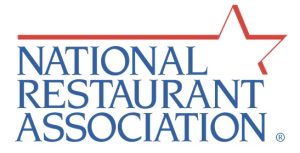Buying a Restaurant: Some Numbers
14 July 2023: Buying a Restaurant: Some Numbers
Restaurants are among the most often sold businesses in North America. So-called “serial restauranteurs” – individuals or couples who start up restaurants to quickly flip them – are plentiful. Many of these restauranteurs have a data base of people who are interested in buying the restaurants they start – a condition that reduces the likelihood of a business broker being involved. But there are thousands of other restaurants that change hands every year. If you’re considering buying one of them but have little or no business ownership experience – especially restaurant-ownership experience – it would be good to know a little bit about what to look for (aside from great food, of course).
 Of course, like every other industry, restaurant values and desirability can be all over the board so the information in this post must be viewed as generalizations but it should give you some initial guidance as to whether the restaurant business you’re considering is over-priced or not. And if the seller is represented by a business broker, what you should expect to receive from that broker to justify the price asked.
Of course, like every other industry, restaurant values and desirability can be all over the board so the information in this post must be viewed as generalizations but it should give you some initial guidance as to whether the restaurant business you’re considering is over-priced or not. And if the seller is represented by a business broker, what you should expect to receive from that broker to justify the price asked.
Some business brokers specialize in one or two industries and, because restaurants change hands more often that other businesses, many business brokers – and many brokerage firms – specialize in restaurants. This specialization can be further segmented with some brokers focusing on the QSR (quick service or fast-food) sector and others on full-service restaurants (FSR). But whether you’re considering a QSR or a FSR, ya gotta know some numbers.
__________________________________________________________________________________
We offer a comprehensive coaching program – both group coaching in our Brokers’ Roundtable℠ community as well as one-on-one coaching – tailored to Realtors, business owners, buyers and anyone interested in valuing, buying or selling a business.
If you’d like to learn more, email me at
jo*@Wo*******************.com
___________________________________________________________________________________
 Getting reliable statistics on the restaurant industry is a moving target in the best of times but Covid made this task much worse. According the the National Restaurant Association (NRA), the industry boasted more than one million businesses in the U.S. before Covid struck but, due to massive government-mandated shut-downs, many closed and never reopened.
Getting reliable statistics on the restaurant industry is a moving target in the best of times but Covid made this task much worse. According the the National Restaurant Association (NRA), the industry boasted more than one million businesses in the U.S. before Covid struck but, due to massive government-mandated shut-downs, many closed and never reopened.
But the restaurant industry is nothing if not entrepreneurial and the NRA now estimates that there are anywhere between 600,000 and “more than a million”. Whatever the number, a good percentage are for sale at any given time.
Buying a Restaurant: QSR or FSR?
QSRs (Quick Serve Restaurants; AKA Fast-Food) total around 220,000 units but the vast majority of them are franchised businesses.
Like buying any franchise, buying an existing restaurant franchise is significantly different from buying an independent business. This holds true whether it’s food service, sign-making, bookkeeping or any franchise business. In The Brokers Roundtable℠, we’ve interviewed an attorney that specializes in advising people buying franchises and that interview, recorded and available to all members of The Brokers Roundtable℠, is full of useful information.
_____________________________________________________________________________________
Our course, “Learn How to Value and SUCCESSFULLY Sell Businesses“, teaches you how to accurately value and successfully sell businesses.
Using the NRA’s numbers, it’s safe to say that there may be anywhere between 450,000 and 800,000 non-franchised restaurants in the U.S. But over the past 10-15 years, private equity has established chains of non-franchised restaurants so some portion of these non-franchised restaurants will not normally be available to the general restaurant buyer.
But the NRA states that 70% of independently-owned restaurants are single-unit operations. This is the market segment in which the majority of buyers will be hunting.
Some Numbers
 We must start out by recognizing that few buyers and even fewer sellers have much of an idea how to value a business. In more than 20 years in the business brokerage trenches, we’ve heard sellers tell us they expect a “multiple of X” times sales or net profit or some other metric. But no one untrained to value business can justify any such claim.
We must start out by recognizing that few buyers and even fewer sellers have much of an idea how to value a business. In more than 20 years in the business brokerage trenches, we’ve heard sellers tell us they expect a “multiple of X” times sales or net profit or some other metric. But no one untrained to value business can justify any such claim.
And besides, restaurant owners, dealing as they do to a certain degree in cash, generally have financial information that is, at best, only marginally related to reality. So let’s look at some ways to approach determining value.
First, the caveats. No two businesses are the same. Volume, sales per foot, owner involvement, the condition of the FF&E (furniture, fixtures, and equipment), and management are all important areas to scrutinize as they all impact value.
Location also plays a critical role. Two restaurants offering the same type of food and atmosphere, similarly sized with the same hours and similar prices will often perform completely differently even if separated by only a couple of blocks..
Cash is another issue to consider.
 While the NRA estimates that roughly 80% of restaurant sales are done via credit card, that number is certainly higher for upscale full service restaurants (FSRs). But that means it’s lower for mid-range and other ones. We have long believed that individual entrepreneurs and business owners are much better stewards of their money than the hordes of faceless bureaucrats charged with dispersing other people’s money so we have a high level of tolerance for business owners who decide to keep a small portion of their income out of the hands of government. However, we have no tolerance for such owners demanding to get paid for the cash they don’t report.
While the NRA estimates that roughly 80% of restaurant sales are done via credit card, that number is certainly higher for upscale full service restaurants (FSRs). But that means it’s lower for mid-range and other ones. We have long believed that individual entrepreneurs and business owners are much better stewards of their money than the hordes of faceless bureaucrats charged with dispersing other people’s money so we have a high level of tolerance for business owners who decide to keep a small portion of their income out of the hands of government. However, we have no tolerance for such owners demanding to get paid for the cash they don’t report.
An owner claiming to take out $50,000, $100,000 – or any amount – cannot expect to get paid for for it; get paid for something that cannot be proven. (See this example.) Any reasonably intelligent buyer would be skeptical of an owner providing tax returns and financial statement showing Discretionary Earnings of $500,000 but claiming that the “real number” is $650,000. And restaurant owners are notorious for such claims – any of which may be true but none of which can actually be proven.
This month, The Brokers Roundtable℠, the online community for business brokers, business owners, Realtors. lenders appraisers and others in the business-for-sale industry, is launching the first in a series of live workshops. This month’s workshop is entitled “Buying PART of a Business”. It discusses the four fundamental elements that must be considered by buyers – and fifth element that business owners looking for partners must consider. This program is for buyers and sellers alike.
Created and hosted by Worldwide Business Brokers, The Brokers Roundtable℠ provides training, webinars, workshops, live interviews and Q&As and connections with professionals in our industry from certified business appraisers, acquisition lenders, accountants, franchise specialists, transaction attorneys, commercial realtors and business brokers in nearly a dozen countries.
Click here for more information – and to join The Brokers Roundtable℠!![]()
So with all that in mind, let’s look at some generalizations; “rules of thumb”, if you will. Again, these are only guidelines.
- Rent expense can be a killer. As a rule, if it falls into the 6%-8% range, you should be okay. Ten percent or more is potential trouble.
- Lease – must be assignable. What we want is for the seller to offer no less than three – and preferrably, five – years remaining. This often means that the seller must get an extension to the current lease. And, again, that lease must be assignable. Any assignable lease is likely to require the landlord’s permission. The landlord might require the seller to stay on the lease, a condition we advise our selling clients against but from a buyer’s standpoint, this is pretty desirable.
- Occupancy costs, of which the lease is only a portion, should not exceed 12%. This includes utilities and CAM (common area maintenance).
- Cost of goods sold should not exceed 35% and lower is better. Use a range of 30%-35% as a guideline.
- Labor should range between 25% and 35%.
- Value as a Multiple of Revenue: 30% – 40%
- Value as a Multiple of Discretionary Earnings: 2 – 3. It’s important to understand the definition of Discretionary Earnings, also referred to as “owner benefits”. Without an accurate Discretionary Earnings number, whatever multiple applied will result in an inaccurate value.
The Bottom Line
Buying a restaurant is basically the same as buying any business – most buyers are going to want to know the answer to the most significant question in our industry: “How much will this business put in my pocket?” The answer to the question is always the Discretionary Earnings number which is why it’s important to know how to calculate it. But the restaurant’s story, location, look, concept, and potential also matter to a greater or lesser degree.
And a buyer must remember that a business’ potential earnings are nothing but wishful thinking if the buyer has to do all the work for the business to reach that potential. You don’t want to pay the seller for work you have to do.
As a buyer, you might easily see yourself owning this or that particular restaurant. You see dozens of ways it can be improved; knock out this wall, extend the bar, beef up the kitchen, add such and such to the menu. The current revenue numbers give you a baseline as to its revenue-generating power “as is”; i.e., the restaurant is doing X in sales before your improvements. That’s what you’re buying and what you should pay for.
Improvements can be made – by lowering expenses or expanding the menu, for example – but there’s no need to pay for anything beyond what the seller is selling.
I’d like to hear from you. What topics would you like me to cover? How can we tailor these posts to be more useful to you and your business. Let me know in the comments box, below, or email me at
jo*@Wo*******************.com
.
If you have any questions or comments on this topic – or any topic related to business – I’d like to hear from you. Put them in the comments box below. Start the conversation and I’ll get back to you with answers or my own comments. If I get enough on one topic, I’ll address them in a future post or podcast.
I’ll be back with you again next Monday. In the meantime, I hope you have a safe and profitable week.
Joe
Searching For…
NOTE TO READERS: Our “Searching For…” feature has been moved to our online community, The Brokers Roundtable℠. It will appear there exclusively from now on.

#business #businessacquisition #sellabusiness #becomeabusinessbroker #businessbrokering #businessvaluation #MergersandAcquisitions #buyabusiness #sellabusiness #realtor #realestateagents
The author is the founder, in 2001, of Worldwide Business Brokers and holds a certification from the International Business Brokers Association (IBBA) as a Certified Business Intermediary (CBI) of which there are fewer than 600 in the world. He can be reached at
jo*@Wo*******************.com
